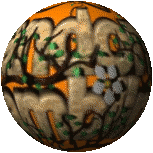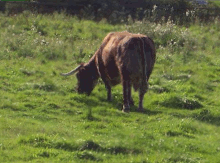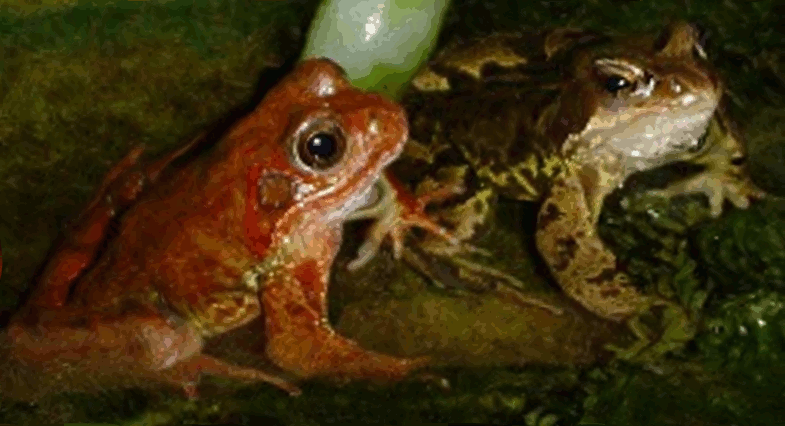Allthough it is only the second day of summer there are so many things happening both in the garden and with the surrounding wildlife. There are armfuls of flowers everywhere and the birds are at their most tuneful, especially the male blackbird. He starts singing at around 3.30 am each morning and is the lead vocalist in the dawn chorus. He is also, probably, the loudest of all the song birds and will find a high point in his territory and sing as though his life depended upon it. The song changes to a loud, 'tocking' cheap if another male ventures anywhere near his mapped out territory. He will also make a similar noise if any of the carrion family or other predators approach near to his nest site.
June is the month for listening . . . the cuckoo (the size of a small dove) arrived in April and lays one egg at a time in a host's nest. The cuckoo has the ability to change the colour but not the size of its eggs so that they resemble the eggs of the host's. The cuckoo's egg takes 12 days to hatch. Around this time of the month, the adult bird changes its tune. Some say that this is in preparation for its long flight back home to Africa to spend the winter months. They usually fly away in late July or early August and the juveniles follow in September.
An old verse about the cuckoo is:
"In April Cuckoo sings his lay, In May I sing all the day, In June I change my tune, In July away I fly, In August go I must."
Little note: after the cuckoo has hatched and as it begins to grow it pushes out the hosts babies one-by-one until it is the only offspring remaining in the nests. As the cuckoo often chooses small nesting birds in which to lay her egg the 'foster' parents wouldn't be able to rear their own young plus the extra large cuckoo chick. Survival instinct makes the large cuckoo chick instinctively 'murder' the little 'foster sister and brother' offsprings that share the nest.
The above pictures are the Iceberg floribunda rose and were taken in my garden. I have had this plant for years and it rewards me every year with hundreds of blooms that flower from late spring through to the first frosts.
June is the month for listening . . . the cuckoo (the size of a small dove) arrived in April and lays one egg at a time in a host's nest. The cuckoo has the ability to change the colour but not the size of its eggs so that they resemble the eggs of the host's. The cuckoo's egg takes 12 days to hatch. Around this time of the month, the adult bird changes its tune. Some say that this is in preparation for its long flight back home to Africa to spend the winter months. They usually fly away in late July or early August and the juveniles follow in September.
An old verse about the cuckoo is:
"In April Cuckoo sings his lay, In May I sing all the day, In June I change my tune, In July away I fly, In August go I must."
Little note: after the cuckoo has hatched and as it begins to grow it pushes out the hosts babies one-by-one until it is the only offspring remaining in the nests. As the cuckoo often chooses small nesting birds in which to lay her egg the 'foster' parents wouldn't be able to rear their own young plus the extra large cuckoo chick. Survival instinct makes the large cuckoo chick instinctively 'murder' the little 'foster sister and brother' offsprings that share the nest.

The above pictures are the Iceberg floribunda rose and were taken in my garden. I have had this plant for years and it rewards me every year with hundreds of blooms that flower from late spring through to the first frosts.

















































4 comments:
What gorgeous flowers - WOW!!!
BEAUTIFUL...they must be very, very happy with you!!!!
BEAUTIFUL flowers!! I wish I could get into gardening...I just can't get past the dirt...and the worms. :(
Great photos. Unfortunately I cannot say the same things two days after the solstice, I stay in the other hemisphere so our winter has just arrived. Pictures like this make me realize that I miss summer already.
Post a Comment